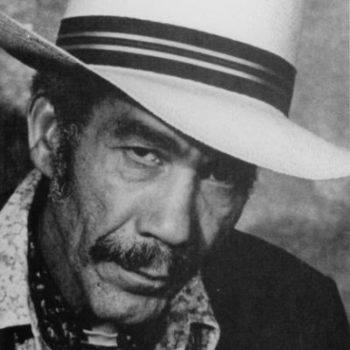Charles Gordone’s Legacy

Through his works as an actor, playwright, and professor, the late Charles Gordone was able to educate people across the country about Black Americans’ struggle for equality.
Gordone, who joined the College of Liberal Arts at Texas A&M University in 1987, was the first African American to win the Pulitzer Prize for drama. In his pursuit for racial and multi-racial unity in American theatre, he spread the belief that honoring people’s histories makes our differences smaller and our similarities more profound.
“[Gordone] believed America is not a collection of separate ethnic and religious and racial cultures,” his widow said in an interview with the Dallas Morning News. “He believed that there is only one American culture, and all of us are part of the one culture.”
Born on October 12, 1925, in Cleveland, Ohio, Gordone was no stranger to racial discrimination and was an outcast at school and within his community. However, despite the challenges he faced growing up, Gordone pursued his passions in theatre and education. In 1942, he enrolled at the University of California at Los Angeles where he graduated with a bachelor’s degree in drama.
After graduating, Gordone traveled to New York City in search of acting opportunities. According to the African American Registry, Gordone starred in a number of theater productions including Jean Genet’s The Blacks, alongside other Black artists who would also later rise to fame, like the poet Maya Angelou. His experiences growing up and his life on stage ultimately influenced Gordone’s award-winning play, No Place to Be Somebody.
“[No Place to Be Somebody] is the story of power, about somebody who is stifled who was born in a subculture and feels the only out is through the subculture,” Gordone said in an article published by the Indiana Historical Bureau of the Indiana State Library.
Gordone’s 1970 play made history for a few different reasons. Unlike most plays of the time, No Place to Be Somebody features a number of characters from different races and backgrounds. It focuses on Johnny Williams, an African American bar owner. Throughout the play, Gordone’s characters explore the struggles of living in a white-dominated society and how they are influenced by other races and prejudice.
After his success as a playwright, Gordone continued to engage in theater productions and began educating others. Texas A&M hired Gordone in 1987 to teach in the English and speech communications department in an effort to diversify what was a mostly white campus at the time.
On campus, Gordone is remembered as being an active educator, starring in and guiding student-led plays and encouraging racial unification inside and outside of the classroom.
According to a story published by the College of Architecture, Gordone became part of a large Western art revival, befriending poets, dancers, artists and singers, and inviting them into Texas A&M classrooms as part of a program he created called “American Voices.” Because he was such an influential leader on campus in promoting equality and racial unification, Gordone left a lasting impression on Texas A&M long after his death in November 1995.
This article by Mia Mercer originally appeared on the College of Liberal Arts website.





